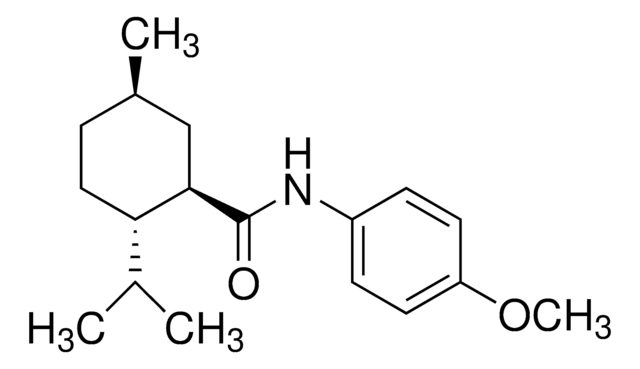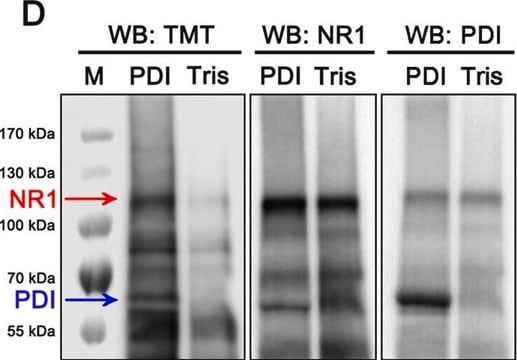R0658
RN-1734
≥98% (HPLC)
Sinónimos:
2,4-Dichloro-N-isopropyl-N-(2-isopropylaminoethyl)benzenesulfonamide
About This Item
Productos recomendados
Quality Level
assay
≥98% (HPLC)
form
powder
color
white to off-white
solubility
DMSO: >20 mg/mL
storage temp.
2-8°C
SMILES string
ClC1=C(S(N(C(C)C)CCNC(C)C)(=O)=O)C=CC(Cl)=C1
InChI
1S/C14H22Cl2N2O2S/c1-10(2)17-7-8-18(11(3)4)21(19,20)14-6-5-12(15)9-13(14)16/h5-6,9-11,17H,7-8H2,1-4H3
InChI key
IHYZMEAZAIFMTN-UHFFFAOYSA-N
Application
Biochem/physiol Actions
Storage Class
11 - Combustible Solids
wgk_germany
nwg
flash_point_f
Not applicable
flash_point_c
Not applicable
Certificados de análisis (COA)
Busque Certificados de análisis (COA) introduciendo el número de lote del producto. Los números de lote se encuentran en la etiqueta del producto después de las palabras «Lot» o «Batch»
¿Ya tiene este producto?
Encuentre la documentación para los productos que ha comprado recientemente en la Biblioteca de documentos.
Los clientes también vieron
Artículos
We offer many products related to transient receptor potential channels for your research needs.
We offer many products related to transient receptor potential channels for your research needs.
We offer many products related to transient receptor potential channels for your research needs.
We offer many products related to transient receptor potential channels for your research needs.
Nuestro equipo de científicos tiene experiencia en todas las áreas de investigación: Ciencias de la vida, Ciencia de los materiales, Síntesis química, Cromatografía, Analítica y muchas otras.
Póngase en contacto con el Servicio técnico










